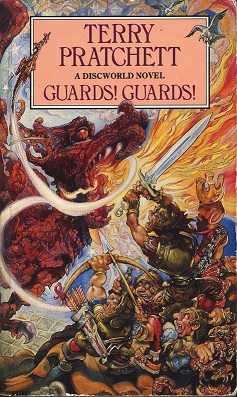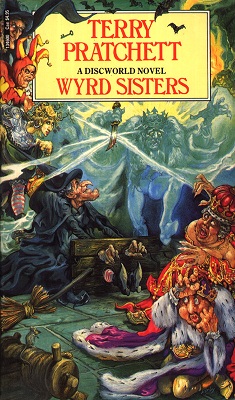
Guards! Guards!
Terry Pratchett
317 pages
published in 1989
For me Guards! Guards! is the last novel you can describe as an early Discworld novel. From here on all the major subseries have appeared: Rincewind, Death, the Witches and now the Night Watch/Sam Vimes novels. It’s the first novel in which Ankh-Morpork becomes more than generic, somewhat over the top fantasy city, with the first extended cameo for the Patrician and the first insights in how he rules the city. Over time Ankh-Morpork and the Night Watch would come to dominate the Discworld series of course; every novel in the main series since The Fifth Elephant either set in Ankh-Morpolk or featuring the Watch or both, but of course we didn’t know that at the time. Back then it was just Pratchett taking the mickey out of yet another set of fantasy cliches.
In Guards! Guards!‘s case, he did that by importing another set of cliches, that of the hardboiled police procedural. Sam Vimes is a hero straight out of an Ian Rankin novel: the grizzled, older, cynical detective staying in the Night Watch because he has no other place to go. He remained in his post even as the watch has degenerated into a farce and he has become a captain of only three men: Fred Colon, a fat sergeant, Nobby Nobbs, a weassely corporal and a new dwarf recruit called Carrot Ironfoundersson.

